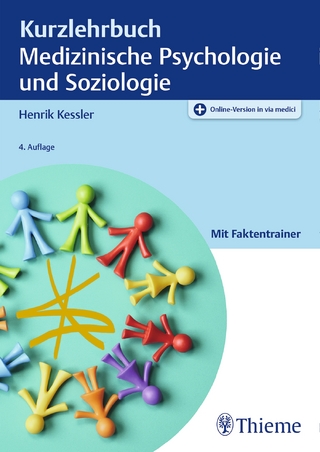
The Social Management of Genetic Engineering
Routledge (Verlag)
978-1-138-39012-6 (ISBN)
Topics covered include a discussion of the issues surrounding ‘Dolly’, the cloned sheep, the politics and ethics of the international research programme to sequence the entire human genome, the ethical questions raised by the creation of transgenic farm animals, the morality of genetic experimentation on animals, the controversy surrounding the patenting of genetic material and of the transgenic animals themselves, the ethical implications of engineering animals for transplanting their organs into humans, and the environmental hazards of releasing genetically engineered organisms.
Wheale, Peter; Schomberg, René von
1. The Social Management of Genetic Engineering: An Introduction. Peter Wheale and Ruth McNally. 2. Patrolling the Boundaries or Tracing the Contours: Cartographic Metaphors and the Human Genome Project. Peter Glasner. 3. The European Community as an Ethical actor? Policy Making on the Human Genome and the Role of the European Parliament. Gabriele Abels. 4. The UK Human Genome Mapping Project Resource Centre: A User Analysis. Peter Glasner, Harry Rothman and Wan Ching Yee. 5. How Long is Co-operation in Genomics Sustainable? Pierre Benoit Joly and Vincent Mangematin. 6. Human Genome Research and the Human Genome Diversity Project: Some Ethical Issues. Peter Wheale. 7. DNA Diagnosis and the Emergence of Cancer-Genetic Services in European Health Care. Pascale Bourret, Lene Koch and Dirk Stemerding. 8. From Eugenics to Therapeutics: The Impact of Opposition on the Development of Gene Therapy in the USA. Paul Martin. 9. Some Moral and Legal Implications of the New Genetics for the Foetus. Peter Wheale. 10. The Moral Value of Animals: Philosophical and Ethical Considerations Regarding Modern Biotechnology. Hub Zwart. 11. Xenografting as a Subject for Public Debate. Medard Hilhorst. 12. Engineering Acceptance: Representations of ‘The Public’ in Debates on Biotechnology. Alison Hill and Mike Michael. 13. Useful Models for Biotechnology Hazard Identification: What is this Thing called ‘Familiarity’? Ad van Dommelen. 14. Democratising the Policy Process for the Environmental Release of Genetically Engineered Organisms. René von Schomberg. 15. Public Policy and Transgenic Animals: Case-by-Case Assessment as a Moral Learning Process. Frans W.A. Brom, Jan Vorstenbosch and Egbert Schroten. 16. From Animal Welfare to Intrinsic Value: Reconstructing Public Debates on Animal Biotechnology. Michiel Korthals and Elmar Theune. 17. Consensus Conferences as Participatory Policy Analysis: A Methodological Contribution to the Social Management of Technology. Igor Mayer and Jac Geurts. 18. The Consequences of Modern Genetic Engineering: Patents, ‘Nomads’ and the ‘Bio-Industrial Complex’. Ruth McNally and Peter Wheale.
| Erscheinungsdatum | 29.05.2019 |
|---|---|
| Reihe/Serie | Routledge Revivals |
| Verlagsort | London |
| Sprache | englisch |
| Maße | 152 x 219 mm |
| Gewicht | 453 g |
| Themenwelt | Sachbuch/Ratgeber ► Gesundheit / Leben / Psychologie |
| Medizin / Pharmazie ► Pflege ► Ausbildung / Prüfung | |
| Studium ► 1. Studienabschnitt (Vorklinik) ► Med. Psychologie / Soziologie | |
| Sozialwissenschaften ► Soziologie | |
| ISBN-10 | 1-138-39012-7 / 1138390127 |
| ISBN-13 | 978-1-138-39012-6 / 9781138390126 |
| Zustand | Neuware |
| Haben Sie eine Frage zum Produkt? |
aus dem Bereich


